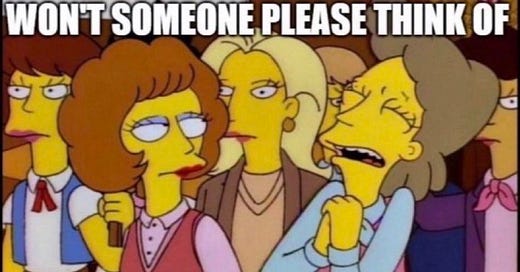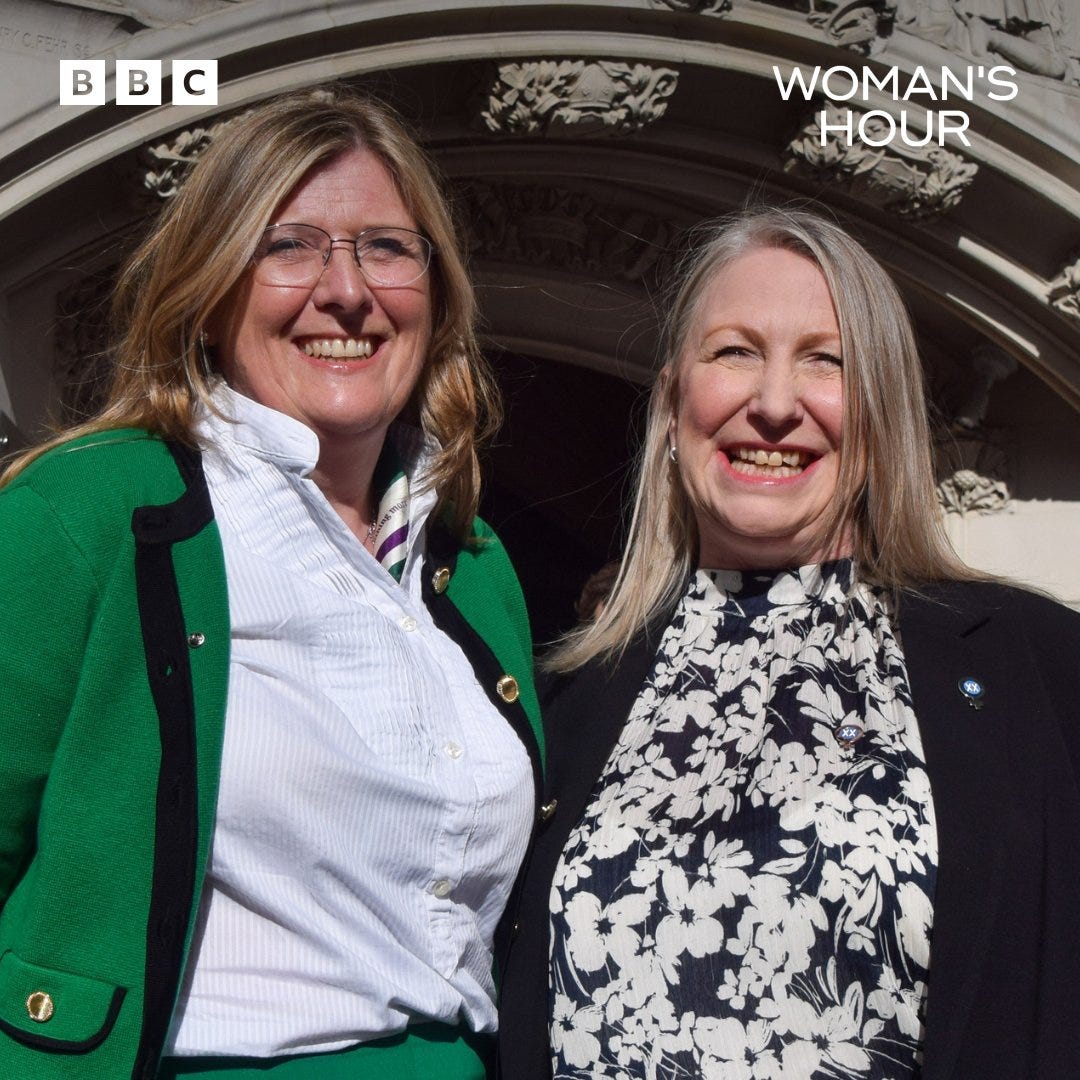But what about women? This is a question I’m increasingly keen for anyone in a position of power and influence to have set as their screensaver, or maybe even consider obtaining as a tattoo. It just seems to keep slipping from people’s minds so easily, doesn’t it? We get left out of research, design, policy - even the advice for heart attack symptoms. We have football, and then we have women’s football. There are people, and then there are women: men are the default human, and we are the afterthought, if we’re lucky. Oh well, at least we still have Woman’s Hour, a flagship programme on the BBC all about us I suppose! That’s something! Isn’t it??
If their coverage of the fundamental issue of sex versus gender is anything to go by, then unfortunately no, it isn’t. This key topic that affects the very heart of feminism and women’s rights, as well as the related treatment of children caught in the cross-fire, has been treated as largely untouchable by them for years. On the extremely rare occasions they’ve featured gender critical voices like Julie Bindel or Kathleen Stock, they have always been careful to stress to their listeners how ‘toxic’ the debate is and issue trigger warnings that they ‘may not agree with everything that’s said’.
Their former presenter over three decades, Jenni Murray, was, ‘roundly ticked off, publicly’, and told she was not allowed to be involved in any further debates relating to the issue on the programme, after she published a column in which she, “merely asked the trans activists to acknowledge the difference between sex and gender, a trans woman and a woman, respect our right to safe single-sex spaces and abandon the nonsensical idea that we should be known as ‘cis women’. We are women. No need for further definition. I begged trans activists to understand feminism and the struggle we had experienced in fighting for our right to be viewed as equals to men.” For this, says Murray, she was branded a TERF and threatened with violence, but it was the punitive response of the BBC that shocked her the most, eventually a factor in her decision to quit the programme in 2020.
In 2022, Woman’s Hour featured an interview with trans identifying male Grace Lavery to discuss his book ‘Please Miss: A Heartbreaking Work of Staggering Penis’ (number of Amazon reviews: 26, current ranking: 751,162. For context, an out of print collection of water birth stories I edited that I know sells about 2 copies a year at most, is ranked more highly, at 201,962). On the programme, on which he appeared shortly after having been banned from twitter for saying he hoped the Queen died of Covid, Lavery outraged listeners by claiming women’s rights had never been ‘sex based’: “The notion of sex-based rights is a very recent phenomenon”, he said, “which hasn't existed for more than a few years”. This and other similarly insane statements were allowed to go completely unchallenged.
Meanwhile, Helen Joyce, author of Sunday Times bestselling book ‘Trans: When Ideology Meets Reality’, (number of Amazon reviews: 2.6k, current ranking: 2077), and Director of Advocacy at the charity Sex Matters, has not been invited on the programme since her book was published in 2021. (She did appear on the programme in 2020). Joyce feels the BBC overall have boycotted her; the BBC have denied this and said they ‘can’t feature everyone’. For the women campaigning from the grassroots on this issue, it’s felt more like they can’t feature anyone who has anything remotely challenging to say about gender.
Check out the seven hundred and sixty four responses to this tweet from Woman’s Hour in 2023, for example, where they asked, “Do you ever discuss a topic and think: ‘I’d love to hear that on Woman’s Hour’?”.
Yes, said 764 of us, as it happens we do: any chance you could have Helen Joyce on? Or maybe just talk about that big old elephant in the room, you know, the one that’s wearing lipstick and running your nearest rape crisis centre?
Woman’s Hour seemed happy to completely ignore these requests. The events of the past week, however, have forced the discussion forwards in ways that are presumably extremely discomforting to those who believe wholeheartedly that a flagship programme for women is the right place for a man to talk about women’s rights and promote his penis book. It would have got more and more awkward, had Woman’s Hour not decided to invite someone - anyone - on, to discuss last Wednesday’s Supreme Court judgement. And so today, we had an interview at the top of the programme, with one of the three campaigners from For Women Scotland who took the fight for legal clarity around the definition of woman all the way, and won: the incredible Susan Smith.
Smith did brilliantly in the interview - she was articulate, calm and clear. She told a little of the road to justice, the day of the judgement, and the ‘most horrible abuse’ that she has experienced and continues to experience, that she feels the Scottish government have enabled, and continue to enable. But then, no sooner has she finished describing this abuse, interviewer Clare McDonnell asks:
“Do you have empathy for trans women? A week ago, they would argue, they had stronger rights than they do today.”
In other words, but what about men?





